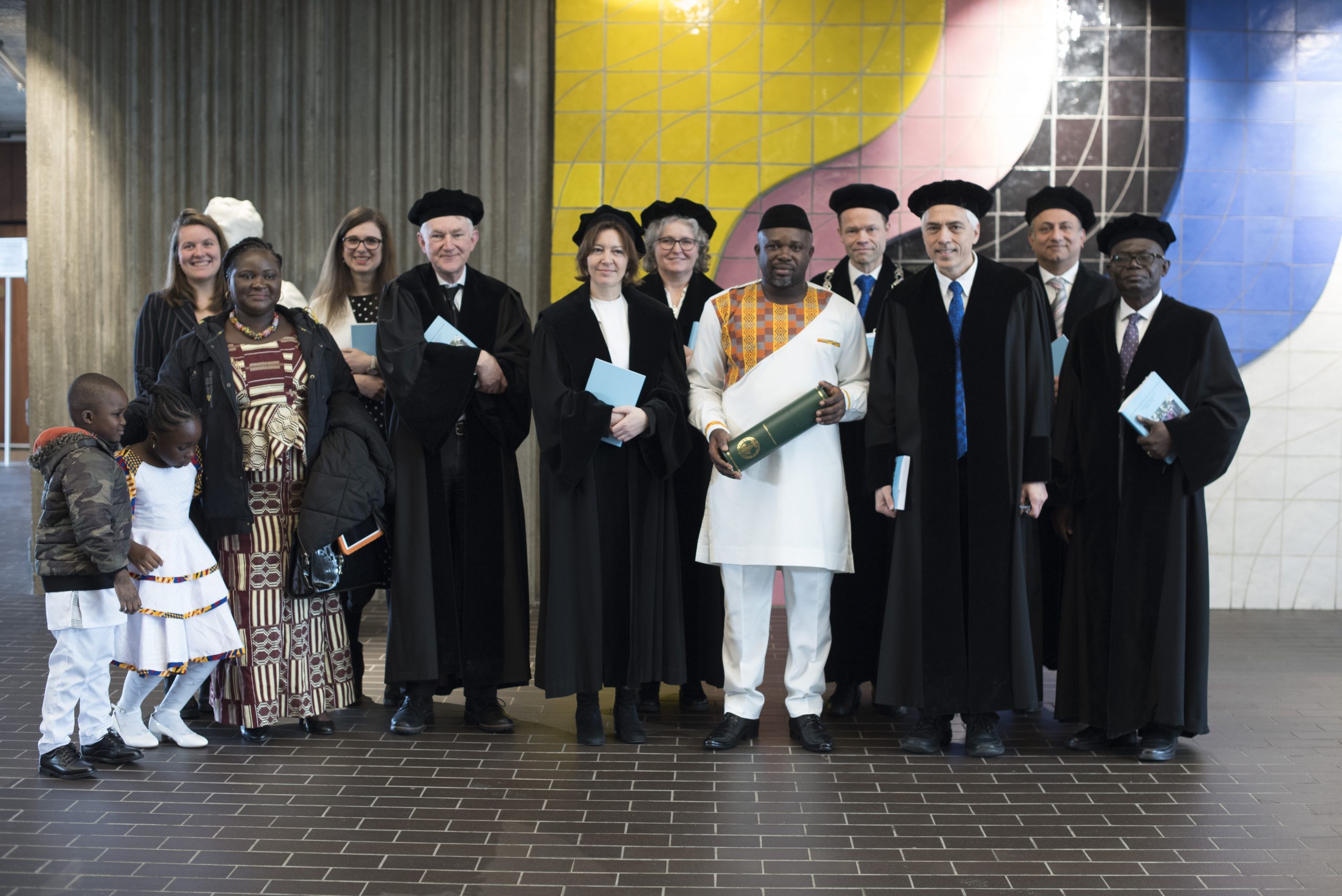
08 Apr PhD Candidate Stephen Duku Successfully Defends his Thesis Just in Time
It is evident, now more than ever before, the importance of access to good health care. With the growing COVID-19 pandemic, not only access to health care, but also trust in the health care system is crucial. This is why Stephen Duku’s PhD defense couldn’t have come at a better time.
On Friday, March 13 in the Aula of the Vrije Universiteit Amsterdam, on the last day in which PhD defenses at the Vrije Universiteit could proceed, Dr. Stephen Duku defended his PhD thesis on the “Client-oriented health insurance system in Ghana”. Under the supervision of Prof. Menno Pradhan, Prof. Wendy Janssens, and Assoc. Prof. Edward Nketiah-Amponsah, the long and tireless journey towards a PhD proved successful for Dr. Stephen Duku.
After an AIGHD-consortium led by Prof. Tobias Rinke de Wit acquired a grant in 2012 from The Netherlands Organization for Scientific Research (NWO-WOTRO), health economist Stephen Duku, along with two other PhD students specialized in anthropology and medicine, respectively, began his research by studying client interaction with health care providers and insurers. Stephen’s research focused on the economics side of health insurance in Ghana.
After 8 years of research, Stephen’s comprehensive thesis discovered that clients of health care, and providers of health care view quality quite differently. Providers value technical quality (i.e. how effective are the drugs and procedures, do clients recover from illnesses); whereas clients are more concerned with how much time they spend at the health facility, how fair the queuing system at the facility is, and whether a provider shows compassion. Stephen found that individuals who have health insurance often spend more time waiting to be seen in the health facility when compared to people who don’t have insurance and pay out-of-pocket. Therefore, insured clients view the health facility as having poor quality of care and may choose to drop out from their health insurance plan.
Stephen’s findings have not only made a major contribution to the policy debate but have also found their way into the academic discussion. Nearly all of the chapters in his thesis have been published, and some in prestigious journals like PLOS One. When asked about the most rewarding part of his journey, Stephen said: “The working relationships with these institutions and their people and the wealth of ideas and knowledge that came from them have been the most fulfilling and beneficial.” It is, in these times, that we see the fragility of health care systems, which makes it even more imperative to continue working to improve them for the people of Ghana.
In 2018, Stephen began working with Marie Stopes International, Ghana to implement a pilot project to test family planning on the insurance package in Ghana. As for Dr. Stephen Duku’s next challenge, he was offered a job with USAID to lead a project that aims to attain universal health coverage in Ghana by 2030. We wish him the best of luck with his next endeavor and congratulate him on his most recent success.
